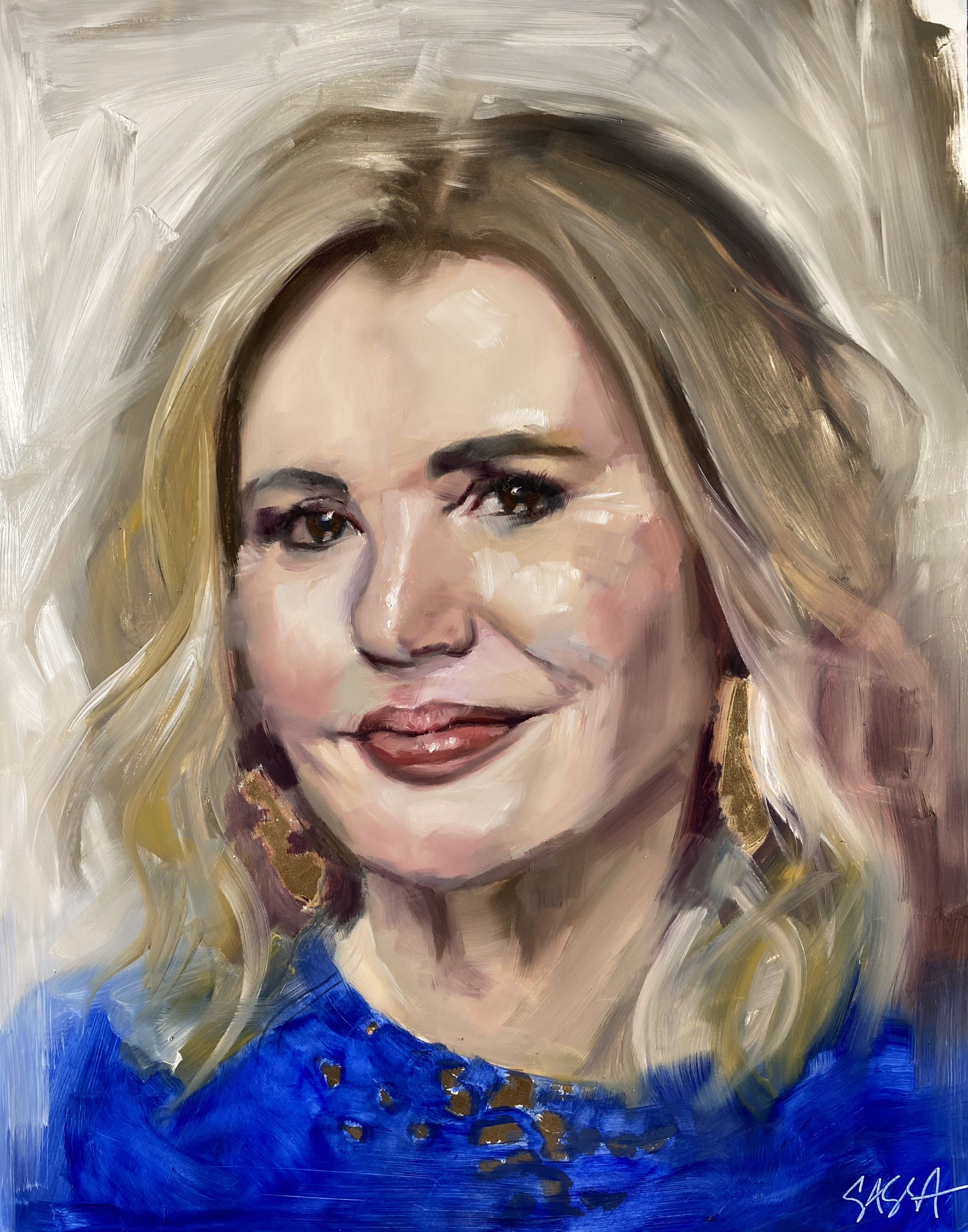geena davis
Born 1956 (64 years old)
“If you risk nothing, then you risk everything.”
Look at her. The OG. The Geen Bean.
I didn’t paint her because of her role in A League of Their Own, which was my absolute favorite movie as a child. Nor did I paint her because her role in Tootsie (second favorite) made Tiny Me question that whole “when you grow up and get a husband” story. I didn’t paint her because of her badass role in Thelma and Louise (but I did watch it while I painted-perks of the job). I didn’t even paint her because she shoots arrows at stuff. She’s a real deal archer, she made it into the semi-finals for the 2000 Olympics.
Nay, I painted Geena Davis because of a role she never saw herself in, one she stumbled into accidentally, and in real life, when watching tv with her daughter. This badass woman noticed a STAGGERING gender misrepresentation in children’s media that somehow no one noticed before. So she just went and started the biggest research project on this topic ever, and the Geena Davis Institute on Gender in Media was born. The institute analyzes media for data reflecting gender representation on screen, asking questions such as, How many overall characters are male vs. female? How much speaking time does each group have? What is the nature of the role? What percentages of women on screen are shown in STEM careers vs men?How does the on-screen representation of LGBTQ individuals compare? What about those with disabilities? People over 50?
The results of this research are SHOCKING. Seriously. If what is shown on screen were reality, men would outnumber women 3:1. Most of the time they would be the ones talking. And they’d nearly always have the job of doctor, scientist, or lawyer. What’s shown on screen is so far behind where we actually are as a culture. I highly recommend spending some time on the institute’s website. It is laid out in a super easy to understand format and it really is nothing short of appalling. I watched an interview with Geena where she is so positive about that work, saying that when the Institute approached the makers of children’s media with its findings, they were just as shocked. She says it’s a phenomenon people don’t realize they are creating, and have been very responsive in an effort to correct it.
I’ve always known that representation is important, but sometimes it can be hard to pinpoint why and how. Last year I took a Harley Davidson motorcycle safety course and was the only woman in a big group of bikers. We were on a lunch break and some of them said they’ve noticed more women riding and wondered why it took so long to see that. (They were trying so hard, bless their hearts). I told them that when I was a kid, the only place I ever saw a woman on a motorcycle was in a magazine, and she was ALWAYS propped up on it in a bikini like some vapid ornament. I could turn the page and see some dude having the time of his life riding one, but somehow my little kid mind was not quite able to switch the roles. This is a mostly harmless example that I’m happy to report has been corrected in my adult life, but lack of representation can be extremely harmful. If you grow up not ever seeing someone who looks like you in a particular role, it never really ignites the spark of inspiration to go do that yourself.
Geena’s organization did a study on the Scully Effect, which I’d never heard of until today. Participants were women who work in STEM fields, and literally over half of them report that Agent Scully from the X-Files was a huge inspiration and role model for them. Geena’s belief is that children must “see it” in order to “be it”, and the research her organization does absolutely backs that up.
Thank you, Geena Davis.
